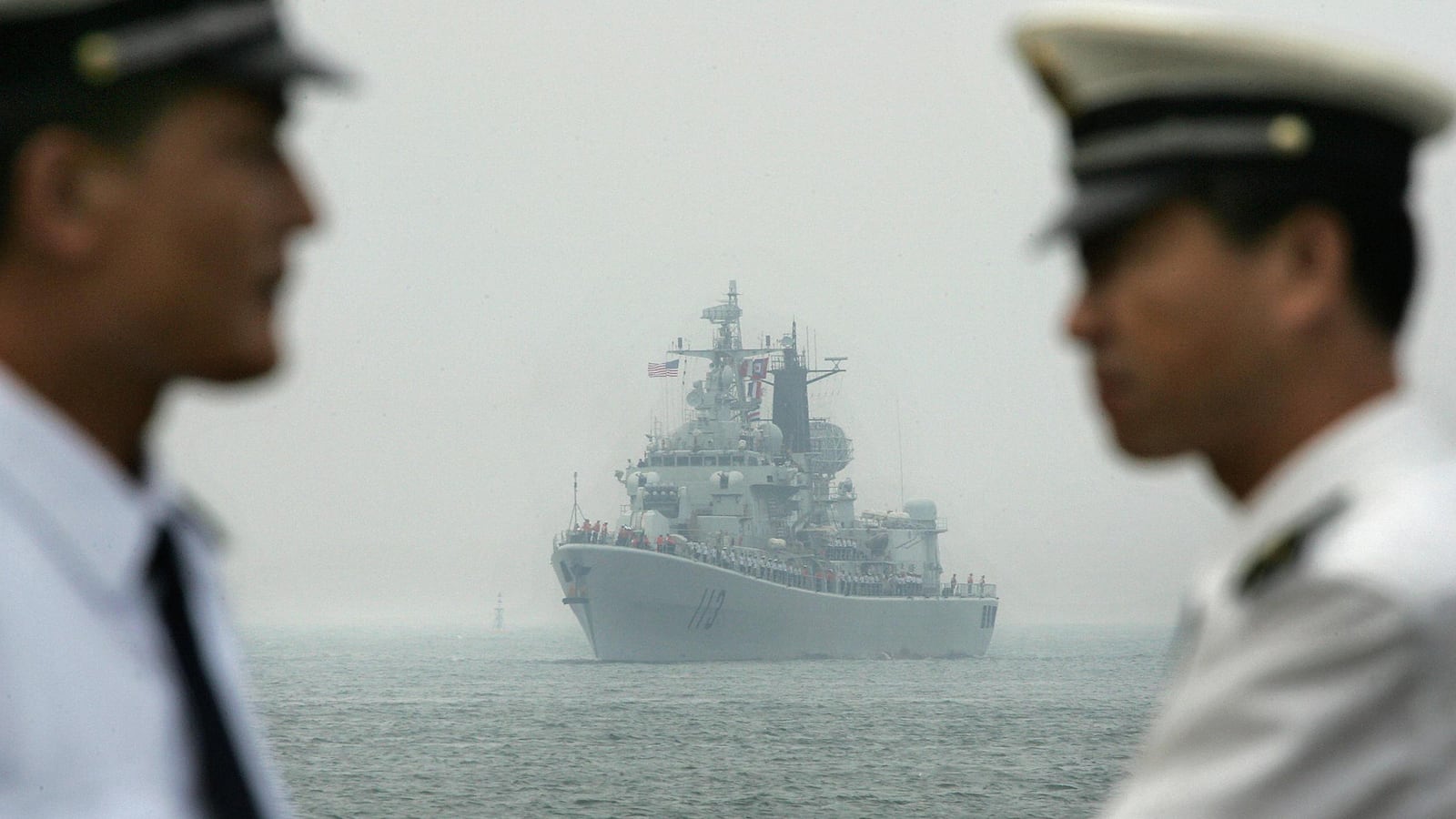Based on prior performance, President Obama might be wary of drawing any more red lines around the world. His warning to Syrian dictator Bashar al-Assad and subsequent about-face is still considered a low point of his presidency. Meanwhile, Vladimir Putin has steadily ignored all American demands that he cease his aggression against Ukraine.

Yesterday in Tokyo, the president made another powerful promise, assuring Japan that the disputed Senkaku Islands come under Article Five of the U.S.-Japan security treaty, and thus would be protected by American forces in the case of a Sino-Japanese conflict over them. In response, the Chinese accused Washington of trying to “cage” China.
Normally, a president’s promise would be greeted with warm appreciation in Tokyo, which has administered the Senkakus since the reversion of Okinawa back to Japan in 1972. The Japanese government has been locked in a tense face-off with China over the islands for the past two years. Patrol ships and planes from China regularly enter the disputed waters and Japanese forces just as regularly confront them, trying to chase them out. Beijing’s goal is to undermine Tokyo’s claim to sole administration of the islands, thus calling into question the U.S. commitment to help Japan protect them.
Unlike Ukraine or Syria, of course, Tokyo has been an ally since 1960. U.S. troops have been based in Japan under various treaties since 1945, and cooperate closely with Japanese forces. Indeed, it would have been a diplomatic scandal, and quite likely the end of the alliance, had the president not reaffirmed U.S. support for Tokyo.
Yet if President Obama’s promise also is a test for the legitimacy of his much ballyhooed “pivot” to Asia, there at least two reasons why he may find himself tested more than he would wish.
First, the Senkakus promise comes just weeks after the Commander of U.S. Pacific Command, Admiral Samuel Locklear, told Congress that the balance of power is shifting in the Pacific to China. This follows comments by other senior U.S. military leaders that they have not seen the resources to back up the rhetorical claims of the pivot, and that they are struggling to meet operational needs with a declining military budget.
Pacific-based military leaders are concerned that there may not be anything to follow up their front-line troops in the case of conflict. That would change political calculations about whether the U.S. would be accepting too much risk to get involved in a clash regardless of diplomatic promises.
Second, global bullies have shown the president’s red lines to be drawn in pencil, not ink. Syria and Russia ignore the White House with impunity, while North Korea broke its only agreement with the Obama administration. Meanwhile, Iran’s leadership proclaims it will never give up its nuclear program even as it keeps the Americans tied up in negotiations.
Perhaps President Obama’s threats are simply seen as no longer credible. Beijing may well decide that the president offers little but rhetoric. In that case, it is not a question of whether the United States has the means to deter Chinese aggression (we do, for now), but whether President Obama has the will. If the leaders of revisionist or disruptive states are betting that the White House will shy away from any real confrontation, then they will embrace aggressive opportunism when the chance offers itself.
In the case of China and Japan, that could lead to the largest clash in Asia since Vietnam. The two have no relations of trust, and the trend line has shown that they are unwilling to solve their dispute peacefully. The worst outcome would be if President Obama’s promise actually worsened the situation in the East China Sea rather than stabilize it. That would truly test U.S. resolve and credibility.





